Fire Extinguisher Types
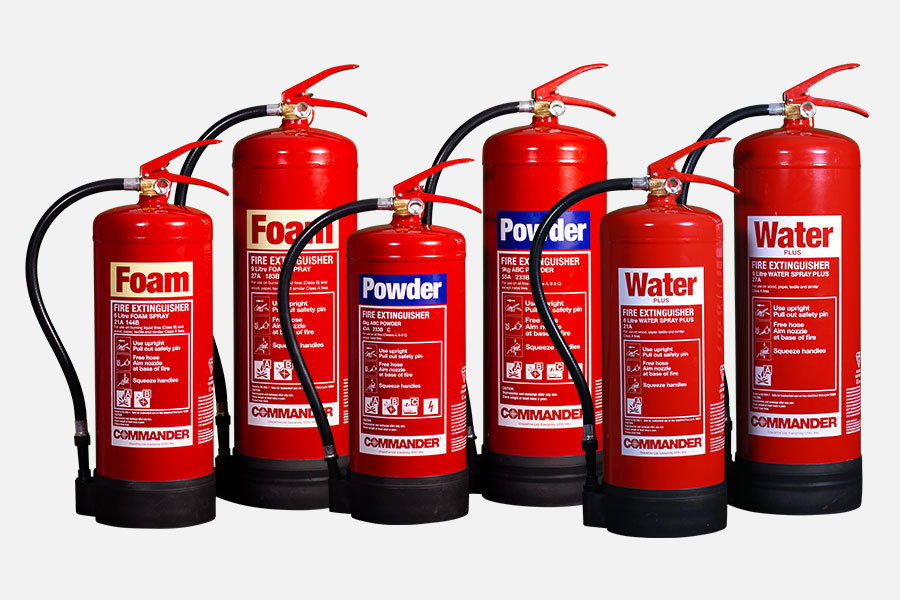
Fire extinguisher types
There are many types of fire extinguishers out there in the marketplace. It is important you select fire extinguishers that do not have many replaceable parts and that these replaceable parts are only available from the manufacturer. That is to say, equipment like this usually comes cheap, buy proves far more expensive in service costs and replacement parts. See below for suitable units available from many suppliers, including MG Fire Safety Group.
| Water Fire Extinguisher: Water fire extinguishers are the most common type of extinguisher for installation in Class A fire risk areas. In this helpful guide, we explain all about how a water extinguisher works to combat flames, when it should and shouldn’t be used and the types of premises that would benefit most from having one on site. Which type of fire should water fire extinguishers be used on? | 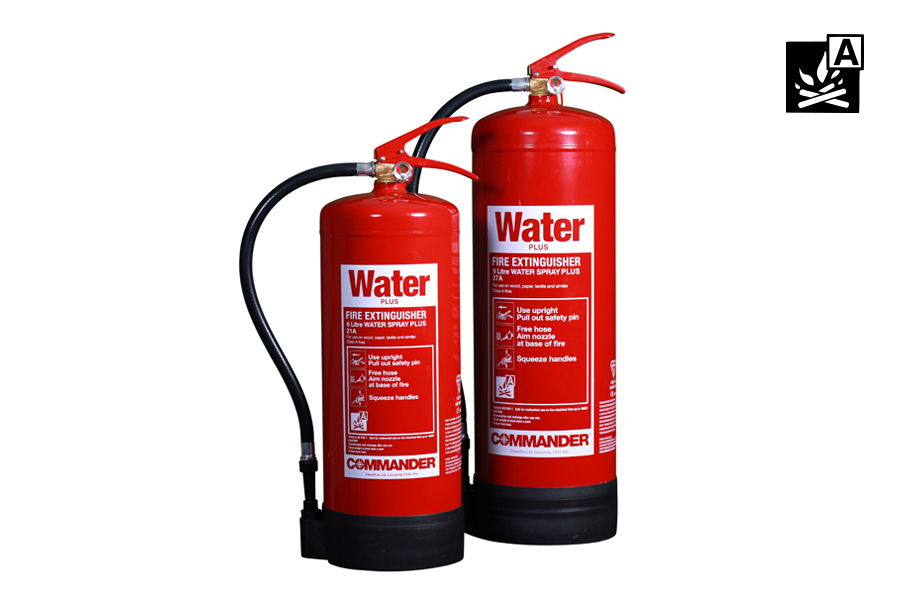 |
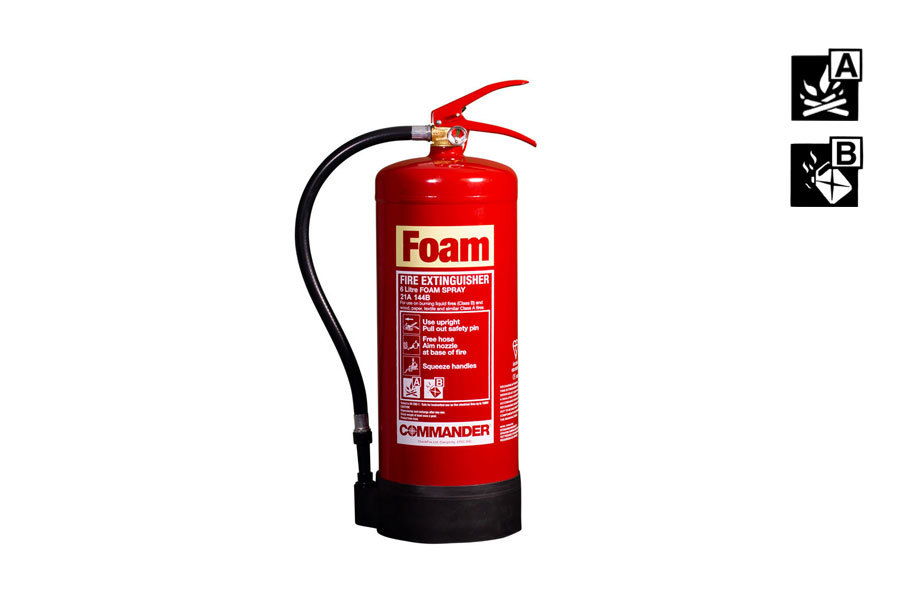 | Foam Fire Extinguisher: One of the most common types of fire extinguisher, a foam fire extinguisher can be used to fight fires that involve flammable solids and liquids such as wood, paper or petrol. Ideal for office environments, hospitals and schools, owning a foam fire extinguisher could be the difference between a minor fire and catastrophic devastation. Here, we explain how you can best combat a fire with a foam fire extinguisher. Which type of fire should a foam extinguisher be used on? |
| Dry Powder Fire Extinguisher: A dry powder (or powder) fire extinguisher is multi-purpose and can be used on Class A, B and C fires. That’s why they’re also known as ABC extinguishers. A powder fire extinguisher is ideally placed in garage forecourts, commercial boiler rooms and large workshops. In this helpful guide, we take a look at how a powder fire extinguisher works and detail all the need-to-know information about this versatile piece of fire safety equipment. Which type of fire should a powder fire extinguisher be used on? | 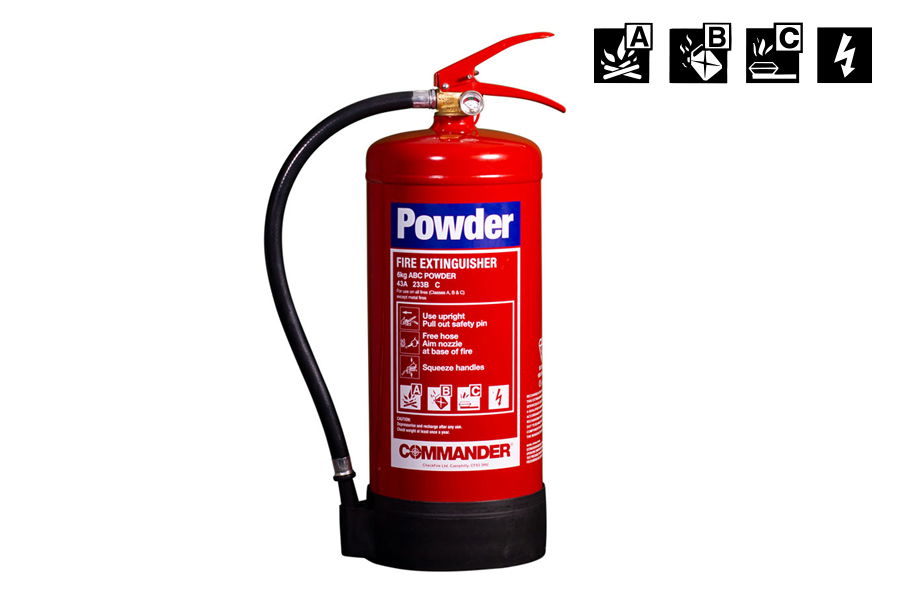 |
 | Carbon Dioxide Fire Extinguisher: CO2 fire extinguishers contain pure carbon dioxide and are used mainly on fires involving live electrical equipment or those involving flammable liquids. In this handy guide, we explain all about how this type of extinguisher works, when it should and shouldn’t be used and which premises would benefit from one. Which type of fire should a CO2 extinguisher be used on? |
| Multi-Chem Fire Extinguisher: Multi-class fire extinguishers are no newcomers to the market, but the MultiCHEM offers a new solution – a high-performance ABF rated extinguisher*. The 34A rating gives the industry’s highest available A rating for a 6 litre extinguisher, meaning that the MultiCHEM can tackle a sizeable. Its 233B rating gives unsurpassed ability to tackle flammable liquid fires involving large amounts of fuel and a big surface area. Then to round it all off, the 75F rating enables this unit to be used on deep fat fryer fires up to 75 litres capacity. All this in one compact and easily-to-handle unit? Yes – it’s the CommanderEDGE MultiCHEM. In line with the true CommanderEDGE heritage, the MultiCHEM is well-decorated. Kitemarked to BS EN3, MED ‘Ship’s Wheel’ approved, and TUV certified, they also have passed the 35kVa Dielectric Test, making it safe for inadvertent use on live electrical equipment. | 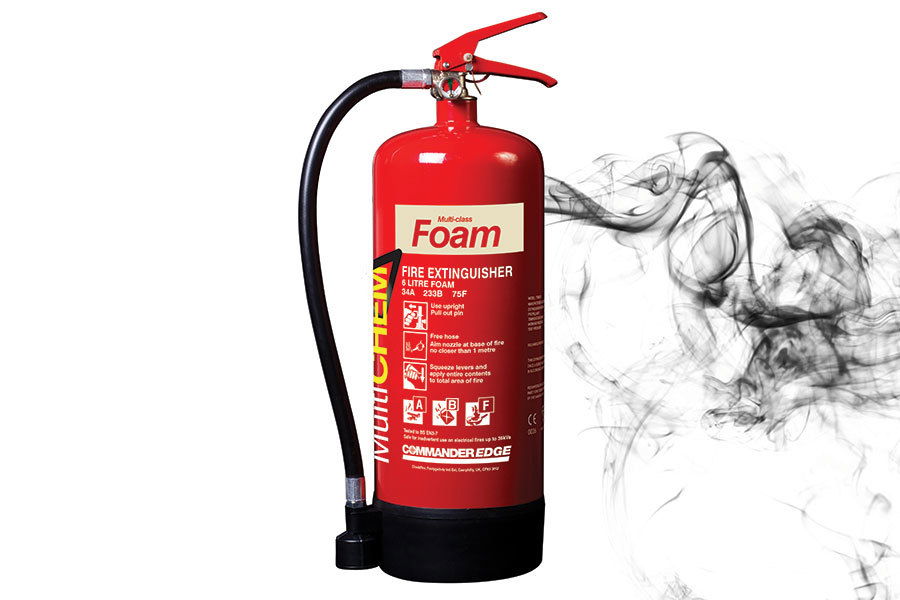 |
Further Details - See our info-links below:
1. Fire Risk Assessment - Block of Flats
2. Fire Risk Assessment - House in Multiple Occupation
3. Fire Risk Assessment - Commercial Premises
Our Fire Safety Risk Assessors/ Fire Safety Managers - Manage All Types Of Premises & Building Occupancy Fire Safety.
Contact Us for your legal, cost-effective ex-fire service, Fire Safety Officer Fire Risk Assessment on: 0800 999 8595.
Fire Risk Assessment Slough - Fire Risk Assessment, Fire Risk Assessment Report, Fire Safety Strategy, Fire Safety Consultancy, Fire Extinguisher Service, Fire Warden Training & Fire Evacuation Drills in Slough, Windsor, Taplow, Maidenhead, Bracknell, Heathrow, Uxbridge, Northolt, Harrow, Wembley, Hounslow, Feltham, Brentford, Farnham Common, Gerrards Cross, Bourne End, Marlowe, Beaconsfield & High Wycombe. MG Fire Safety Group is the trading name of Fire Risk Assessment Slough.